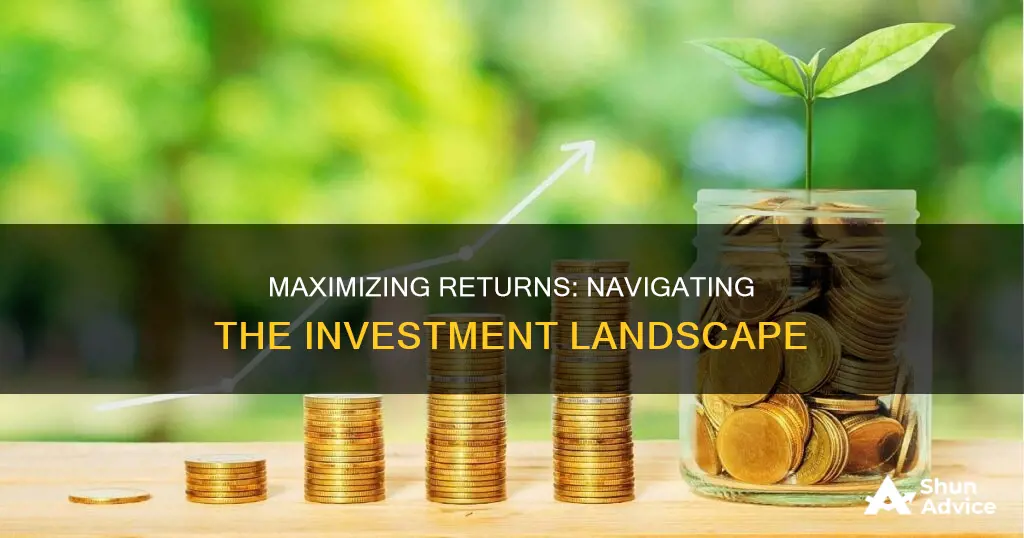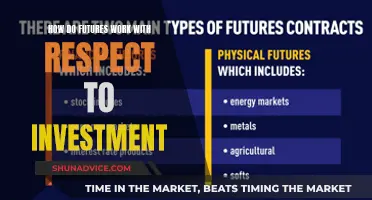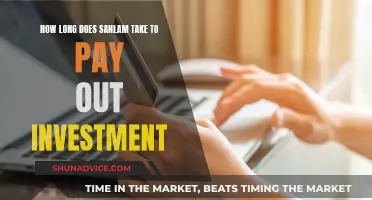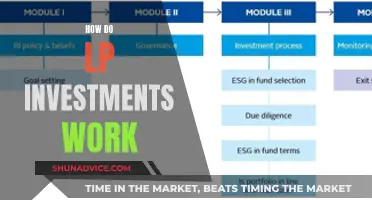
There are many ways to invest your money, from stocks and bonds to real estate and cryptocurrencies. The best investment for you will depend on your risk tolerance, the amount of money you have to invest, and your time horizon, among other factors.
If you're looking for lower-risk investments, consider high-yield savings accounts, long-term certificates of deposit (CDs), or government bonds. These options offer more predictable returns and are good for short-term savings or money you need to access occasionally.
For those seeking higher returns, investing in the stock market via individual stocks or index funds, peer-to-peer lending, or private credit can offer potentially high returns. However, these options come with greater risk and volatility.
Diversifying your portfolio across different asset classes and investment types can help manage risk while pursuing higher returns. Additionally, consider seeking advice from a qualified financial professional before making any investment decisions.
| Characteristics | Values |
|---|---|
| Accessibility | Accessible to virtually anyone regardless of age, income, risk tolerance, or career |
| Risk | Lower risk = lower returns |
| Time horizon | Short-term savings = savings accounts; long-term savings = stocks |
| Knowledge | Stocks require more knowledge than savings accounts or CDs |
| Amount to invest | The more money you can invest, the more likely it is that higher-risk, higher-return investments are worthwhile |
What You'll Learn

High-yield savings accounts
Interest Rates
Firstly, you'll want to look at the Annual Percentage Yield (APY) offered by the account. This is the interest you can expect to earn on the money you keep in the account for one year. While this percentage may fluctuate, depending on the bank and the economy's health, it's worth shopping around for the most competitive rates. The Federal Deposit Insurance Corporation (FDIC) regularly publishes average national rates, so this is a good resource to use when comparing different accounts.
Account Requirements
Many high-yield savings accounts require a minimum deposit to open the account. This can vary from $0 to thousands of dollars, so it's important to check the terms and conditions carefully. Additionally, some accounts may charge monthly maintenance fees, which can eat into your interest earnings. These fees can often be waived by meeting certain requirements, such as maintaining a minimum balance or setting up direct deposits.
Access to Funds
FDIC Insurance
It's important to ensure that your high-yield savings account is insured by the FDIC or the National Credit Union Administration (NCUA). This means that your deposits are protected up to $250,000 per depositor, per institution, in the event of a bank failure.
Online and Mobile Banking
If you prefer to do your banking online or via a mobile app, be sure to check out the digital platforms and tools offered by the financial institution. Read reviews and compare features to find an option that suits your needs.
Customer Service
Finally, consider how easy it is to contact a customer service representative. Some institutions offer 24/7 phone or chat support, while others may only be available during business hours. Choose an option that aligns with your communication preferences and provides the level of support you require.
- SoFi Checking and Savings
- EverBank Performance Savings
- Bask Interest Savings Account
- UFB Direct
- Capital One 360 Performance Savings
- Marcus by Goldman Sachs Online Savings Account
- CIT Bank Platinum Savings
- American Express High Yield Savings Account
Investment Scams: Why the Fall?
You may want to see also

Long-term certificates of deposit
CDs are best suited for those who don't need immediate income and can lock up their money for a fixed period. They are a good choice for retirees and risk-averse investors. The longer the term, the higher the interest rate. However, it's important to note that CDs carry reinvestment risk, which means that when interest rates fall, investors will earn less when they reinvest principal and interest in new CDs with lower rates.
When choosing a long-term CD, consider the APY, minimum deposit requirements, compounding schedule, term, early withdrawal penalty, customer experience, and digital banking services. Online banks tend to offer higher rates than traditional banks, but it's worth comparing rates at different institutions to find the best option for you.
- Quontic Bank: Offers competitive rates for terms ranging from 3 months to 5 years, with a $500 minimum deposit.
- Popular Direct: Provides CDs with terms from 3 months to 5 years, requiring a $10,000 minimum deposit.
- America First Credit Union: Offers a wide range of CD terms from 3 to 60 months, with highly competitive rates and a low minimum deposit.
- Vio Bank: Features traditional CDs with terms from 6 months to 10 years, requiring a $500 minimum deposit.
- Sallie Mae Bank: Offers 11 CD terms, competitive yields, and a $2,500 minimum deposit.
- Synchrony Bank: Provides a variety of regular CDs, no-penalty CDs, and bump-up CDs, with no minimum deposit requirement.
- Marcus by Goldman Sachs: Offers competitive yields, a variety of CD terms, and three no-penalty CDs, with a $500 minimum deposit.
- Capital One: Offers CDs with terms from 6 months to 5 years, with no minimum opening deposit.
- Barclays Bank: Provides CDs with terms from 6 months to 5 years and competitive yields, without a minimum opening deposit.
Lucrative Investment Opportunities: Exploring the Highest-Paying Ventures
You may want to see also

Long-term corporate bond funds
While long-term corporate bond funds are not FDIC-insured, they can be purchased through any broker that allows the trading of ETFs or mutual funds. When investing in corporate bonds, it is important to ensure that the fund is made up of high-quality corporate bonds to reduce the risk of default. Investment-grade long-term bond funds tend to offer higher returns than government and municipal bond funds, but with some added risk.
Some examples of long-term corporate bond funds include:
- SPDR® Portfolio Long Term Corp Bd ETF
- IShares 10+ Year Invmt Grd Corp Bd ETF
- Vanguard Long-Term Corporate Bd ETF
- Invesco Taxable Municipal Bond ETF
- IShares Core 10+ Year USD Bond ETF
The Great Debate: Paying Off Student Loans vs. Investing — Which Should You Choose?
You may want to see also

Dividend stock funds
It is important to note that dividends can be reduced or cancelled at any time and there is a possibility that share prices may fall, resulting in a loss for investors despite the dividends. Dividend yields may also be a sign of an impending crisis at a company. Therefore, it is important to invest in companies with a solid history of dividend increases rather than those with the highest current yield.
Retirement Investments: Navigating the Where and How for a Secure Future
You may want to see also

Value stock funds
Value stocks tend to perform better as interest rates rise and growth stocks become less attractive. Many value stock funds also pay dividends, which is an additional attraction for many investors.
- Vanguard S&P Mid-Cap 400 Value Idx I
- LSV Small Cap Value Institutional
- Vanguard Small Cap Value Index Admiral
- Vanguard Mid-Cap Value Index Admiral
- Vanguard Equity Income Fund
- Hamlin High Dividend Equity Fund
- Columbia Dividend Income Fund
- Vanguard Windsor™ II Fund
- ClearBridge Large Cap Value Fund
- BNY Mellon Dynamic Value Fund
- Vanguard High Dividend Yield Index/ETF VHYAX VYM
- Vanguard Mid-Cap Value Index/ETF VMVAX VOE
- Vanguard Russell 1000 Value Index VRVIX
- Vanguard S&P Mid-Cap 400 Value Index VMFVX
- Vanguard S&P Small-Cap 600 Value Index VSMVX
- Vanguard Small-Cap Value Index/ETF VSIAX VBR
- Vanguard Value Index/ETF VVIAX VTV
- Victory Sycamore Established Value VEVRX
- Victory Sycamore Small Company VSORX
- SPDR Portfolio S&P 500 Value ETF (SPYV)
- Fidelity Value Factor ETF (FVAL)
- Invesco FTSE RAFI Developed Markets ex-U.S. ETF (PXF)
- Vanguard International High Dividend Yield ETF (VYMI)
- Invesco S&P MidCap Value with Momentum ETF (XMVM)
- Vanguard Mid-Cap Value ETF (VOE)
- Vanguard Small-Cap Value ETF (VBR)
Navigating the Legal Landscape: Paying Finder's Fees for Investment Referrals
You may want to see also
Frequently asked questions
High-return, high-risk investments include high-growth stocks like Tesla, individual stocks, and junk bonds.
Low-risk investments with moderate returns include high-yield savings accounts, long-term certificates of deposit (CDs), and government bonds.
Safe investments with low returns include money market accounts, short-term bonds, and fixed-income investments.







